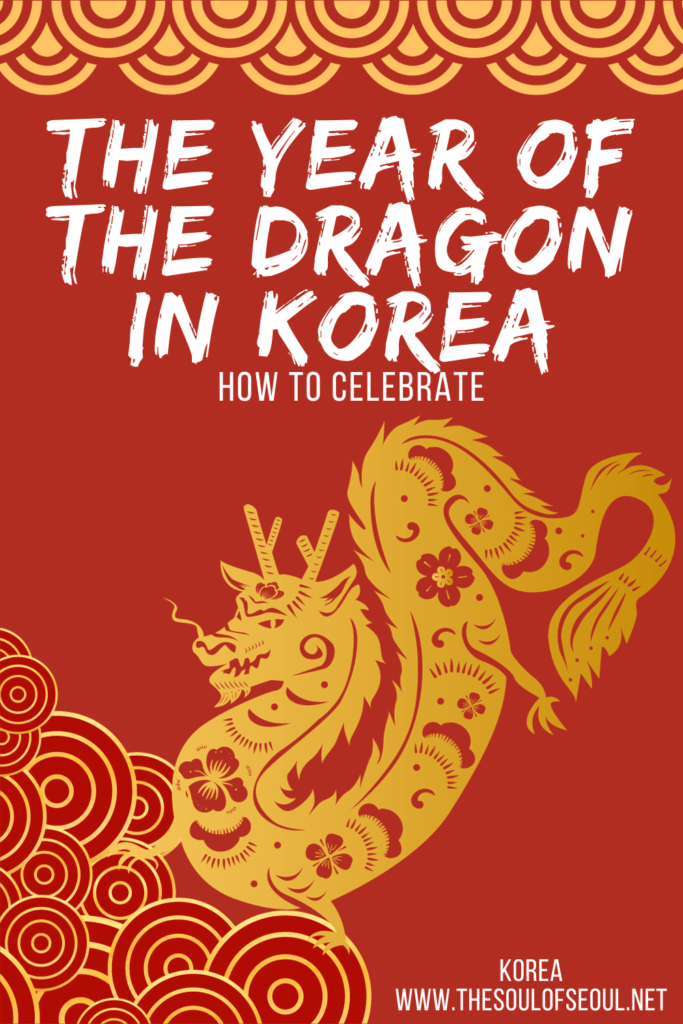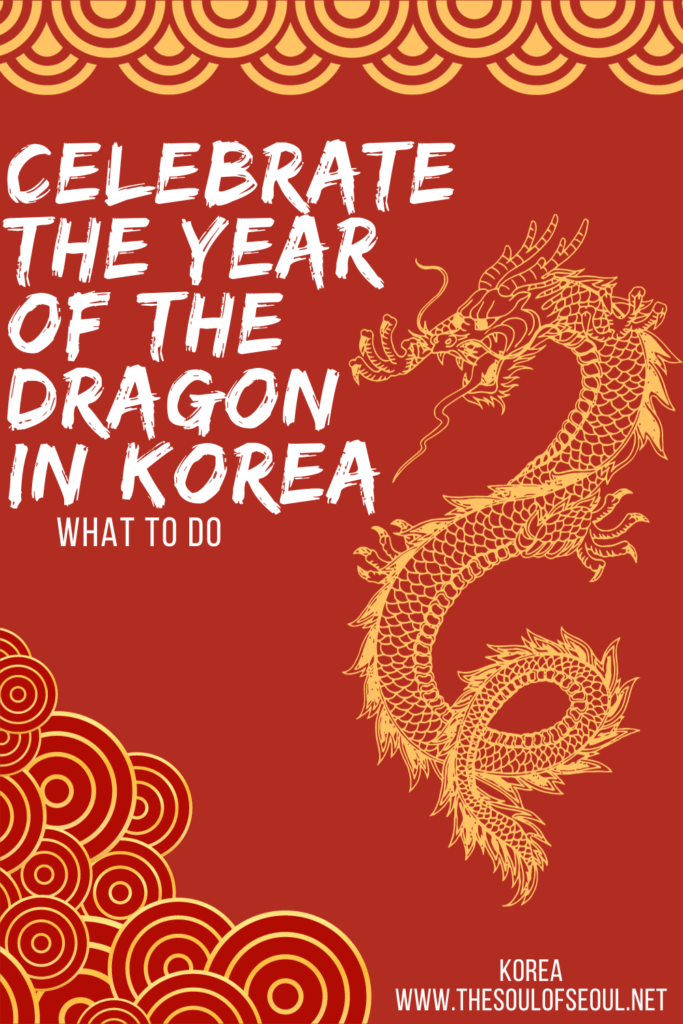How To Celebrate The Year of The Dragon In Korea
Happy New Year! 2024 is the Year of the Dragon, the blue dragon or wood dragon to be precise. The dragon is the only mythical creature among the twelve zodiac signs and is a symbol of strength, prosperity, and success. In Korean, this year is called “Gapjin” (갑진) and if you want to celebrate the Year of the Dragon in Korea, there are a number of things you can do.
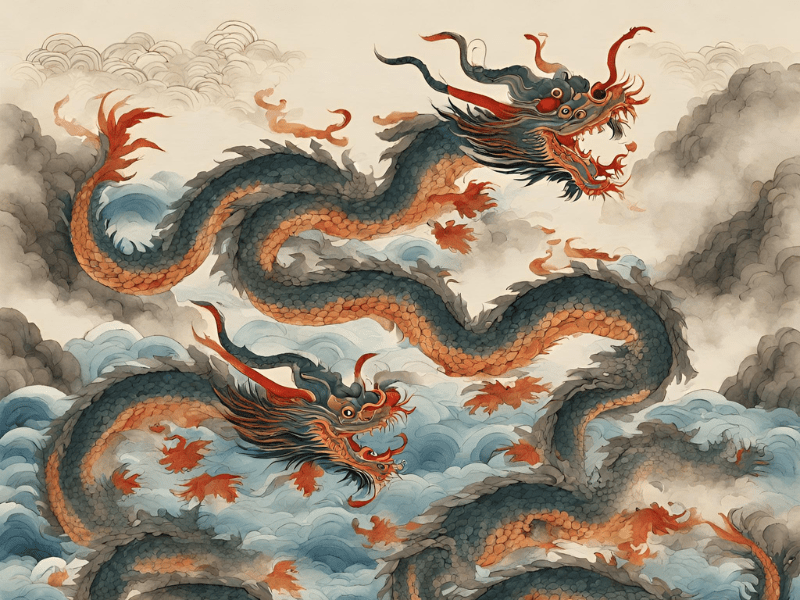
So, what does the Year of the Dragon mean? And, how can you celebrate the Year of the Dragon in Korea? Here’s what you need to know…
(This post contains affiliate links, which means I receive a certain percentage of a sale if you purchase after clicking. Thank you for your support.)
The Dragon in Korean Folk Tales
The dragon, known as yong (용), or ryong in Korean, has influenced countless folklore, folk religions, and legends in Korea. Unlike in European mythology where the dragon is often associated with fire and destruction, in Korean lore, dragons are benevolent beings related to water and agriculture and they’re often considered the bringers of rain. Thus, you often hear about dragons residing in ponds, lakes, and oceans in Korea.
They were originally imugis (이무기), or lesser dragons, who resembled gigantic serpents who aspired to be full-fledged dragons, which they could only become by catching a Yeouiju which had fallen from heaven. In another version, they could become dragons once they survived for 1000 years. In both legends, they are huge, benevolent, and similar to pythons that live in caves and in water and to see one was considered good luck.
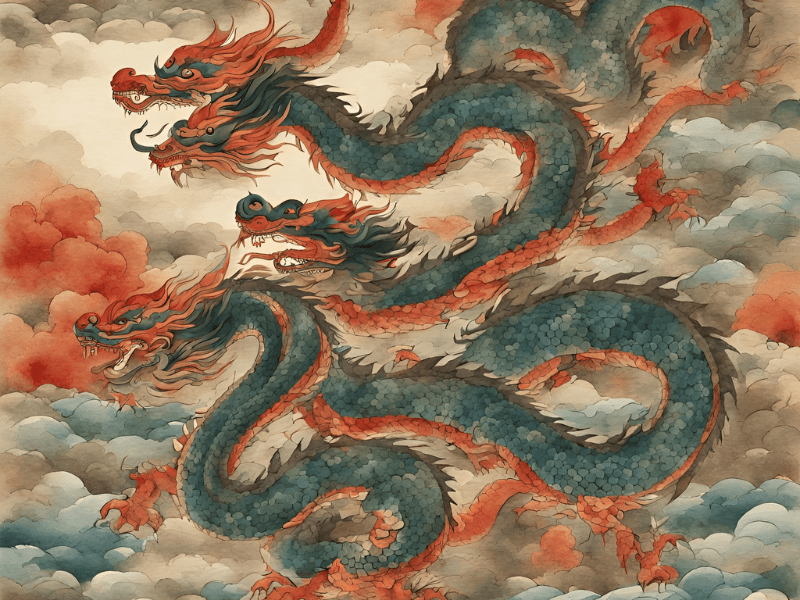
There is a Korean story that comes to mind when thinking of dragons and that is the story of the Silla Kingdom (57 BC – AD 935), one of the world’s longest dynasties FYI.
In the height of the Silla Kingdom’s power, during the rule of its 49th monarch, King Heon-gang, a legend unfolds as narrated in the “Samguk Yusa,” a compilation of historical and folklore accounts. This story begins with King Heongang’s encounter with the Blue Dragon of the East Sea during a beachside stroll near present-day Ulsan. Ominous weather rolled in suddenly and one of the King’s prophets interpreted it as a warning from the dragon to avoid malevolence.
Acting promptly, King Heongang ordered the construction of a temple to honor the dragon and as soon as he did, the skies cleared and the Dragon of the East Sea appeared with his seven sons. Together, they performed a mesmerizing dance and at the end, in gratitude, the dragon offered one of his sons, Cheoyong, to aid King Heongang in the palace.
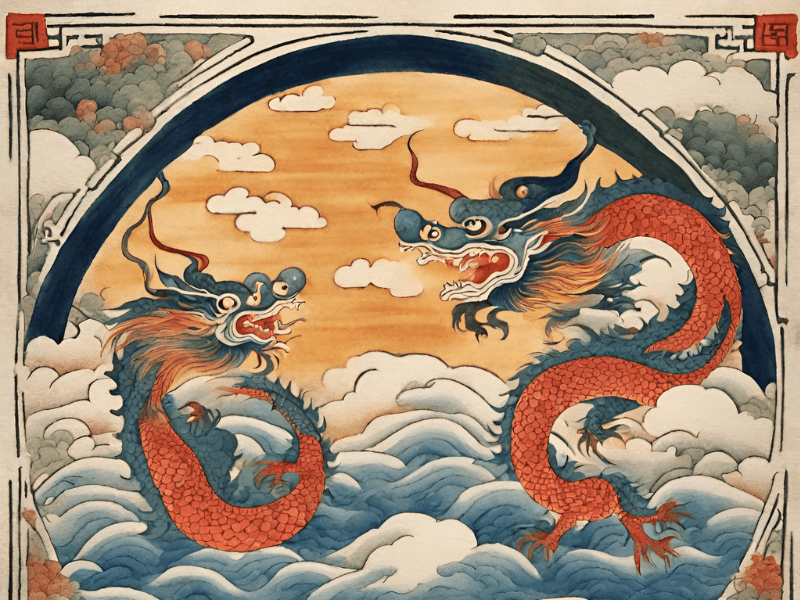
Cheoyong, known for his skills and charm, was married to a stunning lady of the court, drawing envy and desire from others. Among them was Yeoksin, the God of Sickness, who used his magic to bewitch Cheoyong’s wife. Upon discovering this, Cheoyong responded not with violence but with an enchanting dance and song, which captivated and then humbled Yeoksin. Yeoksin vowed never to trouble Cheoyong again and promised to avoid any place adorned with Cheoyong’s image.
This event inspired the people of Silla to paint Cheoyong’s image on their doors and faces to repel evil. The “Cheoyongga,” or the “Song of Cheoyong,” and various traditional masks were created in homage to Cheoyong’s peaceful yet powerful response, symbolizing the cultural significance of art over aggression.
What Will The Year Of The Dragon Bring
Considered a lucky year, especially for childbirth, this year is said to bring unprecedented opportunities. You should try to harness your intelligence, leadership, and go after all of your dreams with creativity, passion, courage, and confidence. It’s a year of vitality and competitiveness.
Did you know: In Korea, if you dream of a dragon, it is customary for people to buy lottery tickets.
How To Celebrate
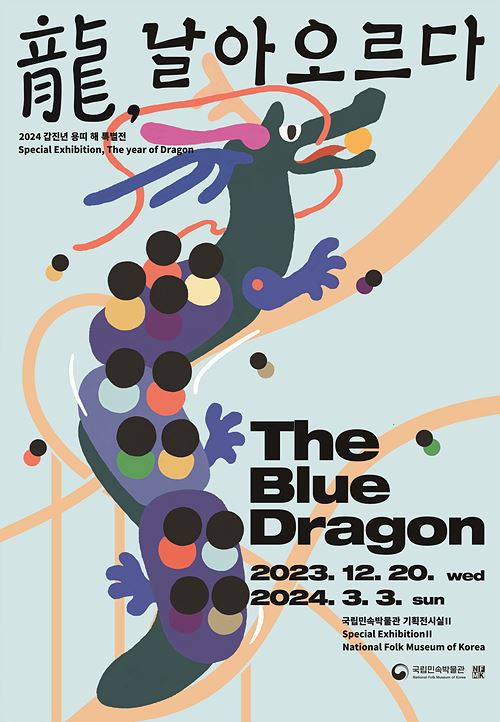
The National Folk Museum of Korea (국립민속박물관)
The museum which sits on the grounds of Gyeongbukgung Palace is holding an exhibit centered on the Year of the Dragon appropriately. The National Folk Museum of Korea hosts events and fun in the grounds out front every year and is a gorgeous place to learn about history and culture. After finishing up there, head across the street to the Museum of Modern & Contemporary Art.
- Address: 30 Samcheong-ro, Jongno-gu (서울 종로구 삼청로 37)
- Hours: 9:00AM – 5:00PM; events outside start from 11:00AM and run until 4:00PM* Note, the museum is closed on Seollal day, but open on the days surrounding it.
- Admission: Free; some events cost a small fee to partake
- Amenities: Strollers and wheelchairs are available free of charge, audio guides available for W1,000
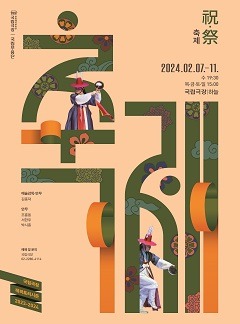
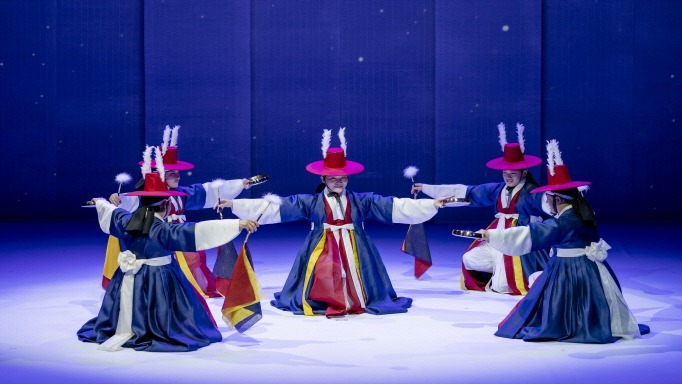
National Theater of Korea (국립극장)
The National Theater of Korea opened in 1950 as the first national theater in Asia. It is the only theater that produces performances that integrate traditional and contemporary arts, and has four theater stages of varying size.
This year, the National Theater of Korea is hosting 《Festival》 from February 7th until the 11th, a special holiday production that signifies the meanings of welcoming spirits, entertaining spirits, and bidding farewell to spirits, while wishing for the dispelling of misfortune through dignified traditional dances. Particularly in celebration of the Year of the Blue Dragon, new works reimagined with more intense and powerful male and female group dances are expected to debut, creating anticipation among the audience.
- Address: 59 Jangchungdan-ro, Jung-gu, Seoul (서울특별시 중구 장충단로 59)
- Book tickets on their website: https://notok.go.kr
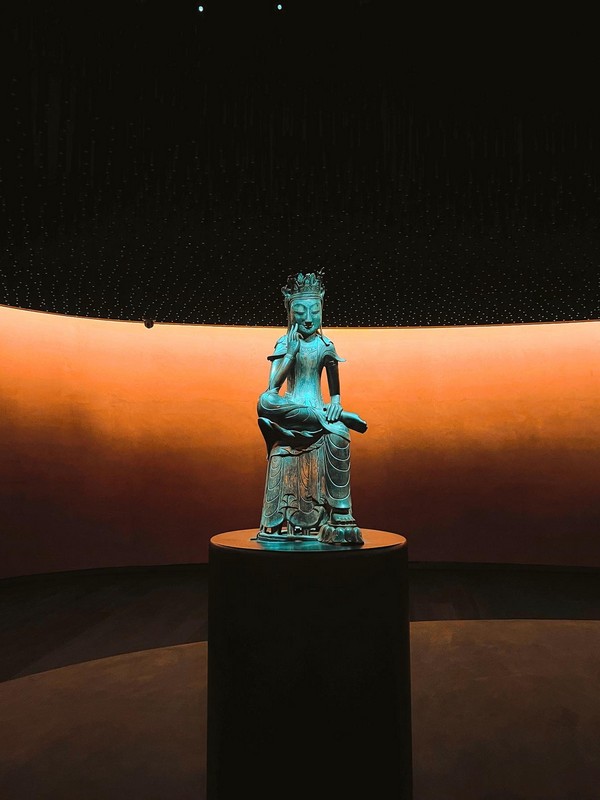
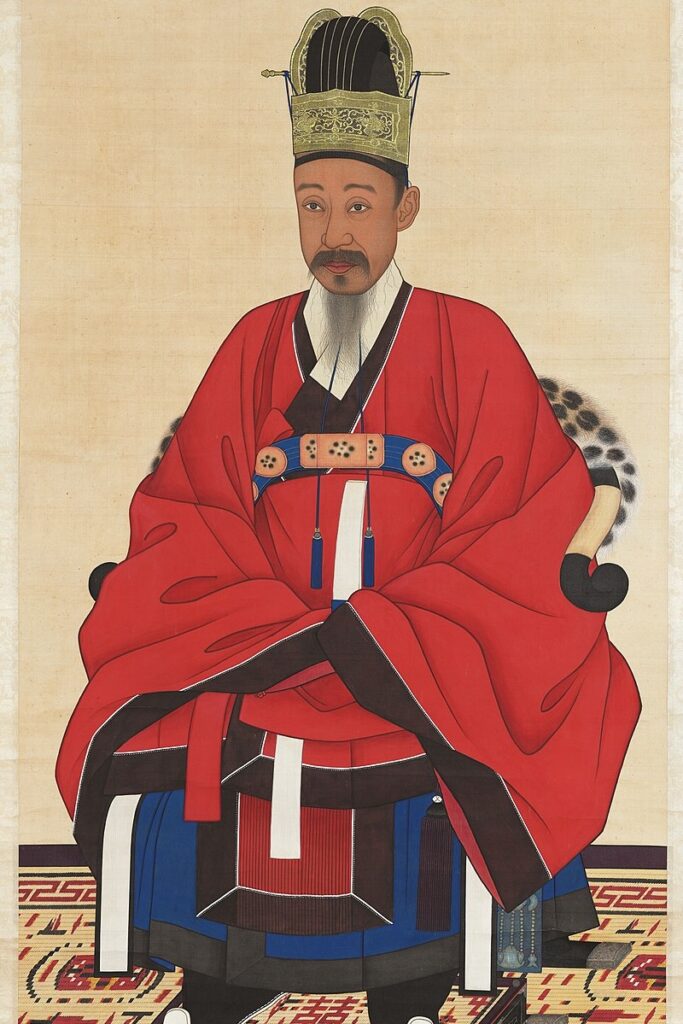
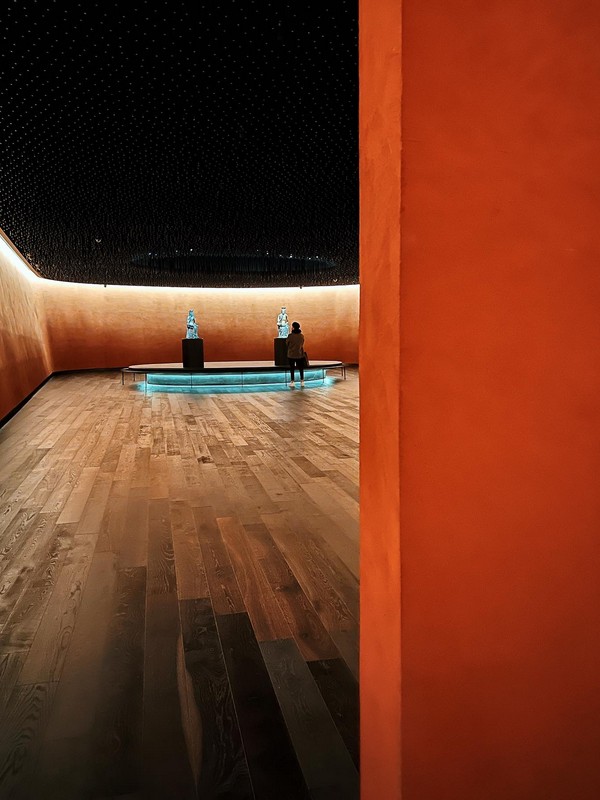
The National Museum of Korea (국립중앙박물관)
The National Museum of Korea is fantastic and FREE! If you want to have a fun scavenger-hunt like experience finding dragons in historical paintings and prints, head here. The collection is not only amazing and would take days to see thoroughly, but there is plenty of opportunity to learn and really see how dragons were represented in historical works.
- Address: 137 Seobinggo-ro Yongsan-gu, Seoul, Korea (서울특별시 용산구 서빙고로 137 (용산동6가))
- By Subway: Ichon Subway Station exit 2 OR bus #502
- Admission: Free, special exhibits are charged separately
- Hours of Operation: Monday, Tuesday, Thursday, Friday: 10:00am ~ 6:00pm; Wednesday, Saturday: 10:00am ~ 9:00pm; Sunday, National Holidays: 10:00am ~ 7:00pm
- Closed: New Year’s Day (January 1), Seollal (Lunar New Year’s Day), Chuseok (Korean Thanksgiving Day) / Permanent Exhibition Hall closed: First Monday of every April and November annually

See What Awaits You In 2024 With A Saju Reading
Fortune telling is a pretty popular pastime for many in Korea. A form of entertainment, but also a guide for many life choices, having a Saju reading is an especially popular experience between December and February as people look to the new year.
Saju is a practice that analyzes the cosmic energy at the hour, day, and year of a person’s death. You’ll want to go with someone who can help translate if you don’t speak Korean and want to understand fully, though there is a saju cafe in Hongdae that offers English translation services.
Jaeminan Jogakga (재미난조각가 타로&사주출장소)
- Address: 26 Wausan-ro 21-gil, Mapo-gu, Seoul (서울 마포구 와우산로21길 26 1층)
- Hours: Every day: 12:00pm ~ 2:00am
- Website: http://www.funnysaju.com/
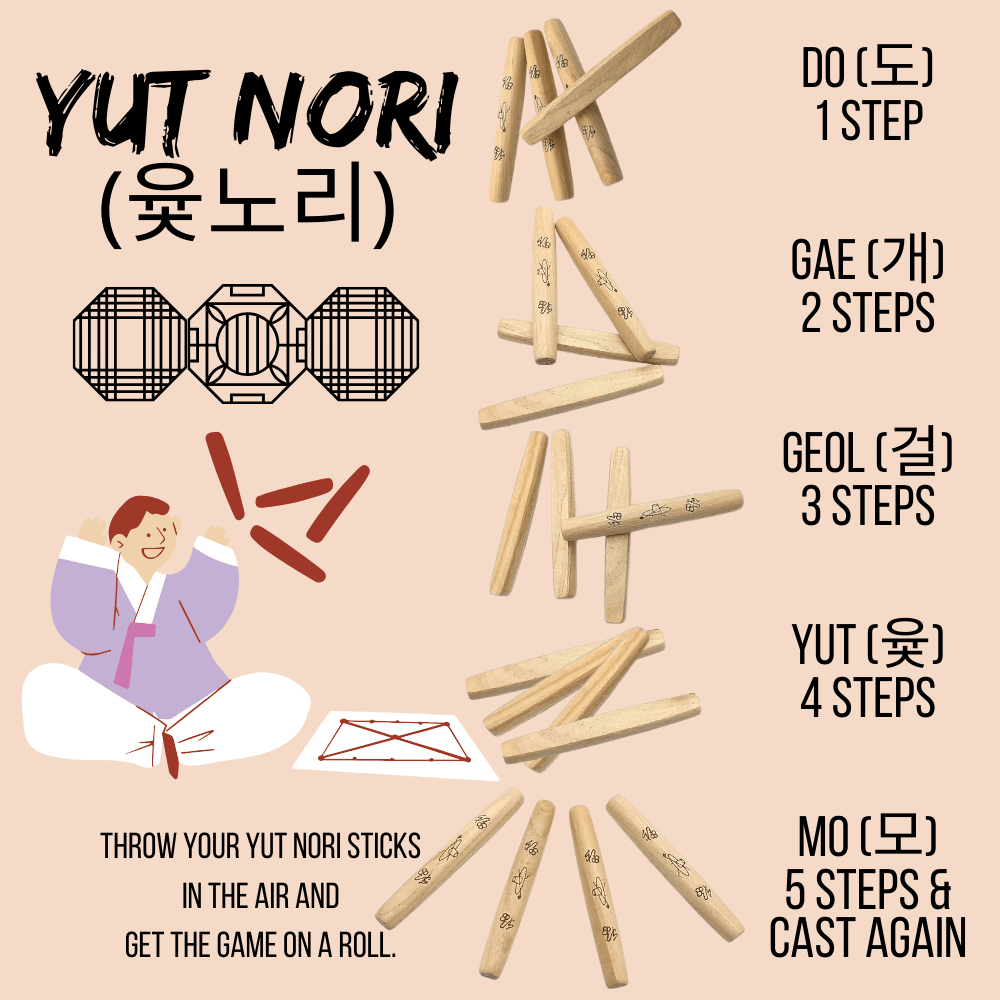
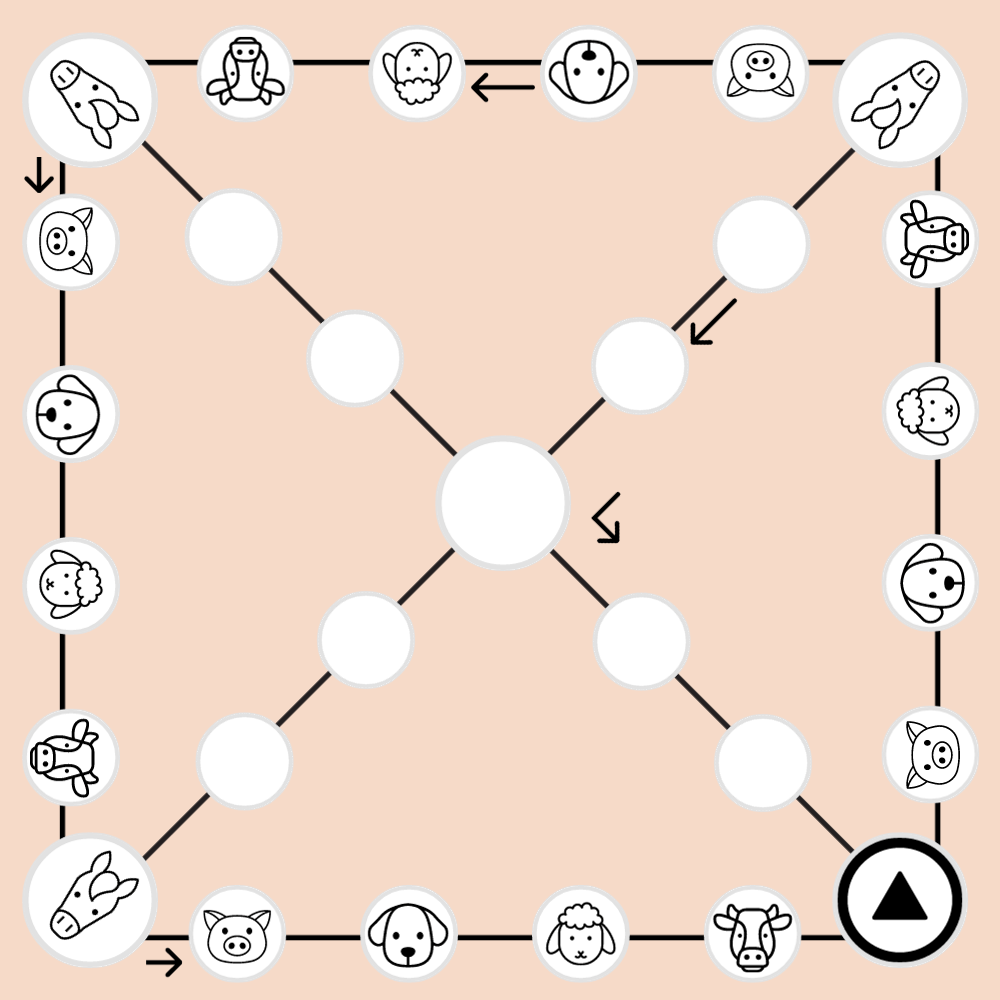
Play Yutnori
Another way to tell your future is to play the traditional Korean game known as yutnori. The game actually started out as a form of fortune telling to see whether the new year would bring about a good harvest or not. Each space on the board has a different name and symbolizes going through the seasons.
Did you like this post? Pin IT!
